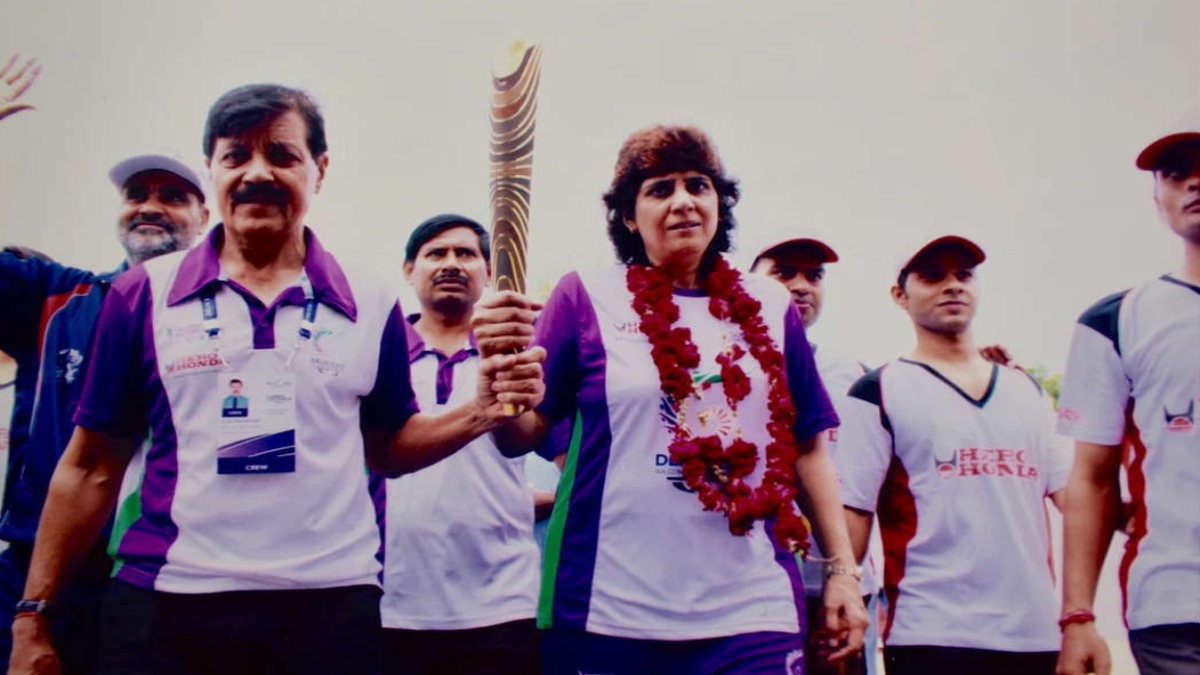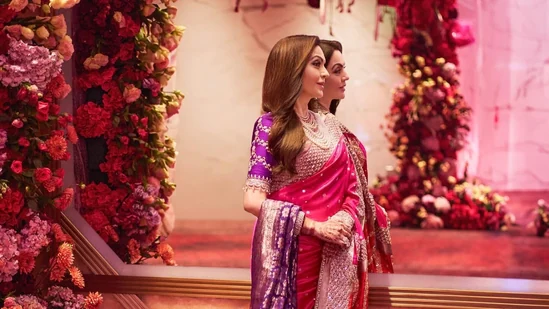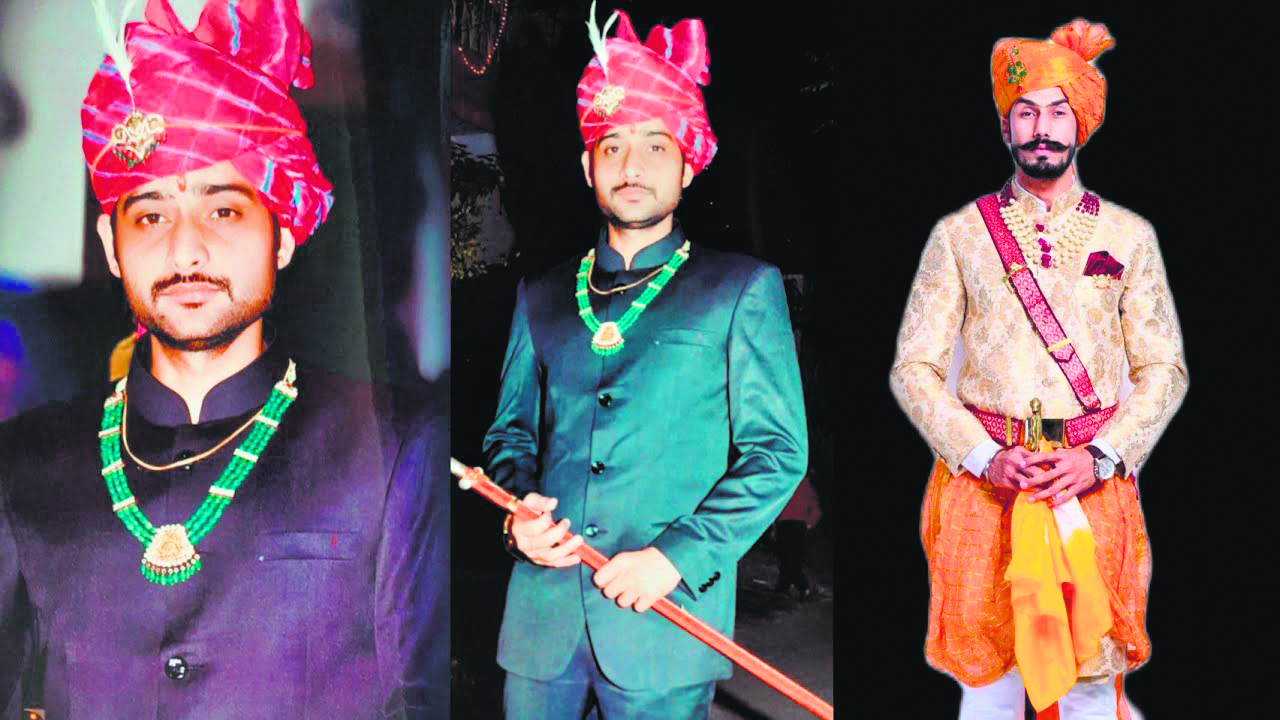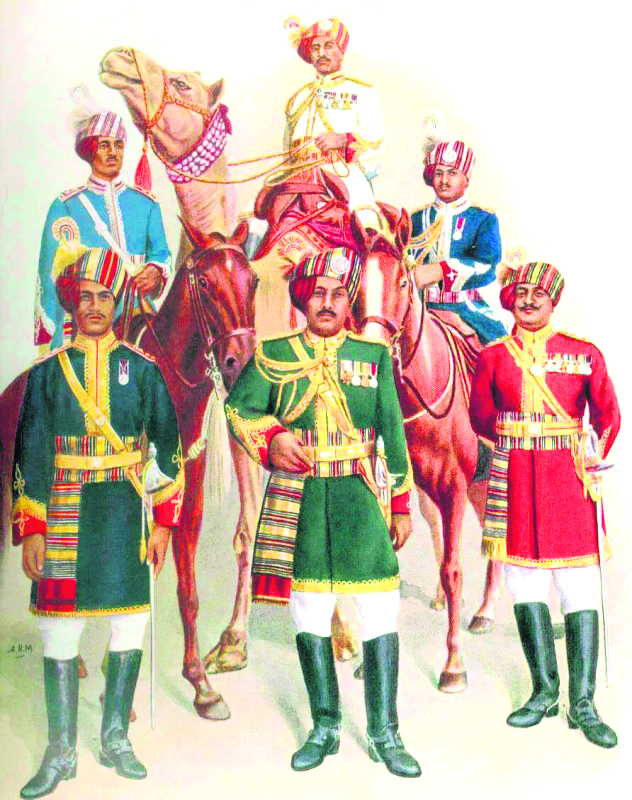Fourteen years ago, on a sultry summer afternoon in Ajmer, the Mayo Girls’ squash team was summoned to meet their new coach, who was to commence their first training camp together. Five minutes before the scheduled time, a lime-yellow Zen hatchback appeared around the corner and from it emerged a reasonably tall and medium built squash veteran, jovial and laid-back as she remains upto this day. As the youngest member of the team, my 11 year-old self first noticed her striking pair of multicoloured Asics joggers, which I would later come to associate as a quirk belonging solely to my beloved coach. For the remaining seven years that I spent in school, not only was my coach a guiding force in my sporting pursuit as a varsity athlete but also a life coach and a dear friend. Now, after a decade and a half of knowing her, it gives me immense pleasure to showcase the extraordinary legacy of the extraordinary sportsperson that she has been. Without further due, Rajputana Collective proudly dedicates its sports section to none other than the iconic queen of the squash courts, Bhuvneshwari Kumari (affectionately known to most as Candy and Ma’am Candy to her students), as she shares her introduction to the sport, her ascending journey and finally, her insight into the future of squash in India.


Bhuvneshwari Kumari receiving her Arjuna Award(Down) and Bhuvneshwari Kumari(Up)
 \
\
Contrary to our standard custom of meeting at the Delhi Gymkhana to knock back a hearty Chinese meal, I met Ma’am Candy for a scheduled interview as a preliminary protocol for this article outside the Willing squash courts on a late winter evening. It seemed peculiar to me that despite knowing her for the better part of my life, there were so many experiences and accounts so intimate to her sporting career that I was listening to for the very first time. Pitching in a slightly linear pace to my interview, I began by asking Ma’am Candy the most basic starting question, “how did your journey as a squash player begin?” With an almost childlike light in her eyes, she perched up on her chair, crossing her arms on the garden table and with a deep breath, transposed me back to her teenage years.
“To be honest, my legendary affair with squash began with a mere fluke. I was a sixteen year-old when the women’s nationals happened to be taking place in Delhi. The match draw enlisted seven participants and was short of just one player in order to form an even roster. Since my father happened to be a close associate of the federation, he offered to help by pleading me to pitch in as the eighth player. I had been playing tennis in the national circuit in any case, and he convinced me that playing a match or two of squash wouldn’t be too difficult, since the two racquet games were quite similar. A thorough novice, I was worried about making a complete fool of myself at the squash nationals, to which my father resolved to arrange training sessions with the marker at these very courts at Delhi Gymkhana. He promised me that I’d just have to play squash for one day, for the sake of proceeding the women nationals’ draw forward; and that I could go back to playing tennis after that. After two weeks of training, I appeared at St. Stephen’s College to play my first match. To be honest, I was looking forward to having fun and didn’t think much of the result. But as luck would have it, I won my first match, defeated the country’s top seeded player in the semi-finals and entered the finals to play against my cousin Nandini, to whom I lost after a very close five-setter.”
After her lightening rise to squashing fame, the rookie reclused back to playing tennis.
In a year’s time, the women’s squash nationals were again waiting to take place. “My family and friends talked me into enrolling for a second time. They said that a one-time victory could be perceived as a fluke, so I should re-instate my victory as genuine by participating again. Hence, I put in a month’s practice this time and swept the winner’s title. The same story followed through the following year, when I was advised to top my newly-established talent with a hattrick victory. And so it was!” For these first three years, Ma’am Candy was only associated with the Indian squash circuit in terms of an annual appearance at the women’s national championship. Her formal training and career-building with squash commenced only after her third consecutive national title, when her exasperated tennis coach Dulaare complained of the game to have ruined her tennis skills and asked her to choose between the two. Deriving more accomplishment from squash, especially with the little effort that she had put into the game, she decided to kiss tennis goodbye. Supporting this decision of hers in retrospect, she adds, “I won’t lie to you by telling you that it was a particular aspect of the gaming technique that superseded tennis and drew me to it. It was the sheer feeling of winning that becomes addictive in any game. Once you start winning, you start loving the feeling. My story with squash was in pursuit of chasing the same, sweet feeling- of victory.” And hence, a new star had dawned in the Indian squash circuit, and would continue to dominate it for the next decade and a half.
During her active years in squash that spanned from 1976 to 1992, the squash legend has held an astonishing record of fifty-nine titles, out of which she has clenched the national title for sixteen consecutive years. The government of India felicitated her sporting achievements by presenting her the prestigious Arjuna award in 1982 and a Padma Shri in 2001. The K.K. Birla Foundation and the Limca Book of World Records have hailed her for holding the maximum number of national titles by a sportsperson in 1991 and 1992 respectively. Recollecting her days as a formidable player, Ma’am Candy elaborates, much to my amusement, “I even participated in the men’s events of a few men’s tournaments, including the Nationals where I did well by winning the first three rounds. Thereafter, I was not allowed to play on because the male contestants were getting complexed by losing to a woman. They were scared playing against me, but I enjoyed winning against them!”
After an unparalleled dominance of the squash courts for sixteen long years, Ma’am Candy sustained a severe bout of knee damage in 1992 that suspended her squash career. A knee replacement in her case meant a year-long gap, which was too prolonged if she were to make a meaningful return into the game. And hence, she formally retired from competitive squash but continued to participate as a World Squash Association (WSA) certified level 2 coach through various national and international squash championships, such as the Commonwealth, Asian and South Asian Games. She continues to serve as the secretary of the Squash Association of Delhi and is closely associated to the Squash Racquet Federation of India (SRFI).
When asked about what she considers to be the primary virtues of a successful squash player, Ma’am Candy emphasises on the basics that form her key strategy. Hard work, consistency, discipline and dedication are uncompromisable components of the game.
An undying adherence to one’s utmost potential, she supplements, is of crucial importance as well. She highlights how, even a five percent drop in performance could acutely amount to a loss. The precision and fitness required in order to keep up with the highly-demanding game has, in public opinion, sharply reduced the number of active years that the average human being spends playing squash. However, Ma’am Candy busts this myth by placing emphasis on the senior events allotted to players as old as sixty-five and above in the World Masters’ Series. She says that a player’s durability in the court has lesser to do with their age and more with their inner mindfulness vis-a-vis the extent of their personal limits of fitness and endurance. Erratic pursuers of the game who take up too much too soon without paying apt considerations to their health and fitness end up placing excessive load on their joints and cardiovascular system, which is when the trouble essentially begins, she explains.
Finally, Ma’am Candy accredits a thoroughly optimistic outlook vis-a-vis the future of India’s squash trends, stating the existence of optimal training standards within the country. “There isn’t much difference between many leading Indian squash players and world champions. The fact that India managed to win a Commonwealth gold, is in itself a statement that we are out there. Furthermore, the generation of new champions is made more accessible by the increasing number of public courts that have expanded squash from being an elitist game of the past to a more widely-available form of recreational as well as competitive sport. Kids nowadays are hungry to win and their commendable discipline makes it a pleasure to coach them” she says.
Just when we begin to wrap up our meeting, a parent approaches Ma’am Candy with his young one, inquiring about the ongoing tournament’s roster. After providing them brief instructions, she glances back at me, and then at the Willingdon Squash Courts. “Ever since I first started with the game, I never quite stopped, as a player, a coach or a proud affiliate. It was in these very courts that I received my first training session as a sixteen-year old, back in 1976. And here I continue to remain” she says, in a beaming nostalgia and grace of her own.













